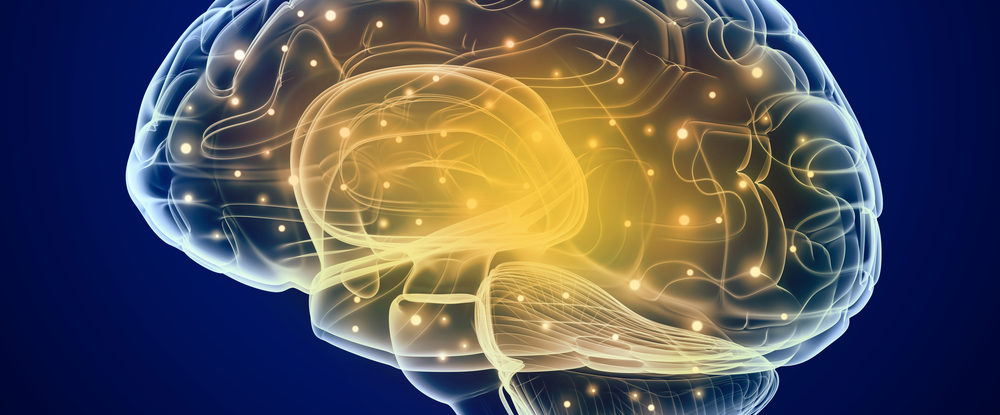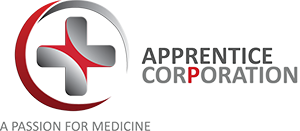This past month I had the pleasure of interviewing a very prominent neurosurgeon in Houston, Texas. Dr. Subrata Ghosh is primarily a brain surgeon, although after many years of practice knows quite a bit about neurology in general.
His philosophy is: I am a physician first and then a Neurosurgeon. I treat patients as people, not as a laboratory number or radiological study. I manage my patients with an individualized approach, as if it is my own body. I also believe in three principles when it comes to treating patients: Availability, Amicability and Affability. I am absolutely committed to provide the highest level of no-compromise care possible for my patients, utilizing the most modern and advanced technologies available.
Because neurosurgery is a demanding field requiring an enormous amount of time and devotion, we are appreciative that Dr. Ghosh was able to spend a few minutes with us answering some questions related to neurosurgery and the profession in general. Here’s the interview:
 Thank you for agreeing to talk with us today. First of all, what got you interested in neurosurgery?
Thank you for agreeing to talk with us today. First of all, what got you interested in neurosurgery?
Well, when I was in medical school I always knew I wanted to be a surgeon. I completed general surgery post-graduate training and practiced as one for several years. But neuroscience was (and still is) the least understood sub-specialty in medicine. My curiosity towards Neuroscience is what drove me into neurosurgery. I liked neuroscience & I liked surgical principles, so the combination naturally led to Neurosurgery.
Thank you. If you were to describe to a high school student what you do during the day, how would you describe it?
Well, as I said before, I’m a physician first and then a neurosurgeon. The best example I’ll give you is what I’ve told my daughter since she was four years old. I still say this to young high school and college students that I mentor quite regularly.
I remember telling my daughter when she was four years old: I want you to wake up every morning and tell yourself, “I have to do two things today. Number one: I have to learn something new today. Number two: I have to help one person today.” I remember her being just 4 years old at that time she would ask me, “How do I help them?” And then I said to her, “Well, you could help by sharing your lunch with your friend in school who may have forgotten to bring a lunch. You could give a dollar to a person who doesn’t have money to buy food. Or you could help a blind man across the road. Or you could help like I do by treating patients. Just help one person a day.”
And because children are always fundamentally curious to learn, she asked “Why.” It’s the question every child asks, doesn’t matter what it is. I said, “Well, if you do these two things on a daily basis, you’ll go to heaven.”
Then came the hardest question: “What is heaven?” I remember telling her that I do not know what exactly is Heaven or how beautiful heaven looks, but I’m told it’s the most beautiful place. But I can guarantee you a few things. No human being alive will ever be able to describe to you exactly what heaven looks like or how beautiful it is. That’s number one. And number two, if you do these two things on a daily basis you will go to heaven way before all those people who claim they are religious, whether they go to churches, mosques or synagogues or temples. And that’s where the conversation ended.
So, going back to your question, I simply try to help at least one person a day and that is what drives me as a physician and that is how I would like to define my profession.
That is a great story. Thanks so much for sharing it. I know our readers appreciate it. The next question is: What surgeries do you do more often than others?
I usually do more brain surgeries than spine surgeries. A general neurosurgeon usually performs about 70-75% spine, and 25-30% brain surgeries. My practice is a little more sub-specialized in that I do 60% brain and 40% spine surgeries.
Is there any one particular kind of brain surgery you do?
I’ve done more neurovascular (brain aneurysms and AVMs) and complex brain surgeries over the last 15 years in Houston than most other neurosurgeons. Because of that reputation, my practice is weighted more towards brain than spine problems.
Thank you. Now, about medical school. Of course we all have our preconceived notions of what that would be like, especially if we’ve not gone to medical school and don’t know for sure. What was the hardest part of med school and how did you deal with it?
The hardest surprise for me was just this huge, explosive amount of knowledge that you initially have to muster in a short time through memorizing. Medicine is an Applied Science in its truest sense. It gets easier to comprehend and understand this knowledge once you are able to apply it in clinical practice. Then it makes more sense and is easier to remember. But the amount of explosive knowledge that you have to cram initially just to go through the medical school and pass several examinations was probably the hardest part.
I don’t ever think that the number of years or the amount of time it takes one to pursue a career is an important criterion for choice of a career. You have to be passionate enough to pass through any period of time for anything you want to do. People may think that the number of years that you have to go through for medical school is a long time. But in an average span of 80-plus years of life, that one year or two extra years of school is not important.
Learning never stops, whether one is in school or not. We all need to learn something new every day. One also has to realize that all of us will spend the greater part of our lives in our work environment, whether a lawyer, a politician, an artist or a physician. Therefore, one needs to follow his/her passion to choose a career so that he/she can wake up every morning at 5, go to work and return home at 6 or 7 in the evening and NOT tell him/herself, “I hate my job!” My advice to the younger generation is: “Never, never compromise your passion and take short cuts to try and save one or two years of school because you will be miserable for the greater part of your life.” I didn’t fully appreciate this when I was young and now I do. It is very important for kids to be aware of this.
That is great advice. But given that you’ve just said that, was there ever a point where you wanted to quit?
That word “quit” was never in my dictionary; not now, not in my past. I never wanted to quit medical school or anything I ever did. If I start something I will have to see it through to the end and then move on from there. I’ve never thought about quitting anything. That has always been my mind set. I also tell kids: “If you want to be ‘successful’ in life, whatever that definition of success may be to you, you have to be both lucky and good. You have no control over the luck part, so simply forget about getting lucky, follow your passion, study and work as hard as you can, be honest to yourself and everything else will follow you in life.
That makes sense. Did you have a favorite part of medical school?
Friends and associations. This is more advice I have for kids, including my own daughter. Education starts at home with parents, not in school. I reflect on how I grew up myself as a child and I believe that by fifth, sixth or seventh grade a child has already developed certain levels of expectations of his/her own in terms of studies and growing up as a person with regards to life’s values. After that it is too late for parents to help guide them for the most part. After the age of 10 years or so, I believe the friends and associations that the child will have from the age of 10 to 25 years will dictate where they would go in life.
I strongly believe that I am here today in my life due to the wonderful friends and associations that I have had in my younger age through my middle and high school and college years. It is extremely important to choose your friends correctly; friends who would influence you positively in life.
I have had friends in college who were extremely talented in school, yet we had this wonderful, healthy and competitive relationship whereby we would share our notes and knowledge to help each other go through endless number of tests. Yet we had fun in between with sports and music at the same time. I have been playing drums and singing throughout my college and professional life over the last 40 years, off and on. I still perform almost every year for charity here in Houston. I was also a semi-professional athlete in Cricket and Ping Pong. I feel very lucky that I have had the opportunity to associate with such a bunch of wonderful and talented friends when I grew up and that’s why I am who I am today.
Thank you. And our final question. What advice would you offer a high school student considering this as a career?
I have mentored many high school seniors and undergraduate students over the last 35 plus years. I’ve always told them that medicine is a profession, indeed, but if you’re not humane enough, you should not be in this profession. My biggest criticism of medical school curriculum is that we were never taught in medical school about how important it is to be a people person.
Just think about it. On a daily basis when I treat patients, whether in surgery or seeing them in my office for the first time, I come across a person and family members who are all stressed, concerned, in denial or angry, upset, depressed or frustrated. So to be a physician, one has to have enough conscience, empathy, and patience to listen for the humanity in him/her before one can gain enough trust to heal them. A patient trusts and surrenders to a physician with his or her own life. No other profession creates this unique kind of bond as it does between patient and a physician. That is why I have always felt that if you are not a people person and not humane enough to handle it, please don’t get into this profession.
Another important tip: Medicine may not be the right choice for you if you think you are the smartest person in the world and want to make a “lot” of money. But if you are, you shouldn’t be in this profession. You need to be humble enough to consider yourself like every other average human being and be willing to be a team player. Most often, it’s not just one physician treating a patient; there are multiple specialties involved including so many other allied health professionals. So my advice for choosing medicine as a profession would be: “Please consider this profession only If you think you are an average or above average person, compassionate, a team player and hardworking. And if you are, you will always lead a very decent life, professionally, financially and emotionally and live with honor and dignity in any society regardless of wherever in the world you live in.
Dr. Ghosh, I cannot thank you enough for your time today.
Dr. Subrata Ghosh is a neurosurgeon in Houston, Texas. He is the Medical Director of Neurosciences at HCA Gulf Coast Division. He is also the Chief of Neuroscience at Clear Lake Regional Medical Center and serves as a Clinical Faculty of the Dept. of Neurosurgery of Baylor College of Medicine. Dr. Ghosh received his medical degrees from Calcutta National Medical College, India, completed his training and practiced as a General Surgeon for several years before he came to USA as a Ph.D. Student. He completed Post-doctoral fellowship from College of Physicians and Surgeons of Columbia University, NY and completed Neurosurgery training from Indiana University. Dr. Ghosh has been in independent neurosurgical practice for over 16 years.
Get started on the path of neurology today
This concludes our series on neurology. If, based on the information, you’ve decided you’d like to enter the field of neurology, you can start learning today regardless of your age.
The Apprentice Doctor offers a For Future Doctors Course and Kit. In addition to fact and theory, the course also provides opportunities for you to practice some of the skills neurologists, and neurosurgeons perform. You become an apprentice in the field.
If you missed any article in our neurology series and would like to go back and catch up, click on the following links:
The Nervous System and How it Works
What’s the Difference Between A Neurologist & Neurosurgeon?
Path to Becoming a Neurologist or Neurosurgeon.
A Day in the life of a Neurologist and Neurosurgeon.
If you would like to read another interview with a neurosurgeon, we recommend the visiting: https://www.npr.org/2016/10/07/496948795/a-neurosurgeon-reflects-on-the-awe-and-mystery-of-the-brain


Great interview . But he never mentioned his family life . And how his job influenced him to pick a wife to tolerate his long hrs , and emergency calls late at night . I would of like his thoughts on family life . Thx’s.
This is a valid downside of medicine – especially all the surgical disciplines.